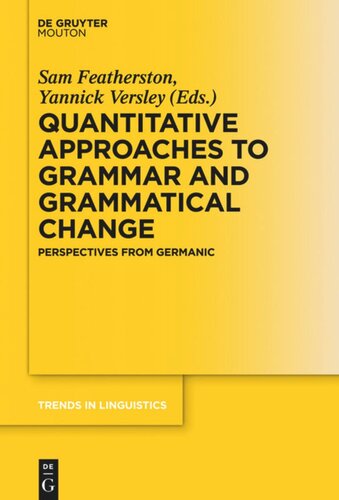

Most ebook files are in PDF format, so you can easily read them using various software such as Foxit Reader or directly on the Google Chrome browser.
Some ebook files are released by publishers in other formats such as .awz, .mobi, .epub, .fb2, etc. You may need to install specific software to read these formats on mobile/PC, such as Calibre.
Please read the tutorial at this link: https://ebookbell.com/faq
We offer FREE conversion to the popular formats you request; however, this may take some time. Therefore, right after payment, please email us, and we will try to provide the service as quickly as possible.
For some exceptional file formats or broken links (if any), please refrain from opening any disputes. Instead, email us first, and we will try to assist within a maximum of 6 hours.
EbookBell Team

4.7
26 reviewsThe newly-emerging field of theoretically informed but simultaneously empirically based syntax is dynamic but little-represented in the literature. This volume addresses this need.
While there has previously been something of a gulf between theoretical linguists in the generative tradition and those linguists who work with quantitative data types, this gap is narrowing. In the light of the empirical revolution in the study of syntax, even people whose primary concern is grammatical theory take note of processing effects and attribute certain effects to them. Correspondingly, workers focusing on the surface evidence can relate more to the concepts of the theoreticians, because the two layers of explanation have been brought into contact. And these workers too must account for the data gathered by the theoreticians. An additional innovation is the generative analysis of historical data – this is now seen as psycholinguistic theory-relevant data like any other.
These papers are thus a snapshot of some of the work currently being done in evidence-based grammar, using both experimental and historical data.